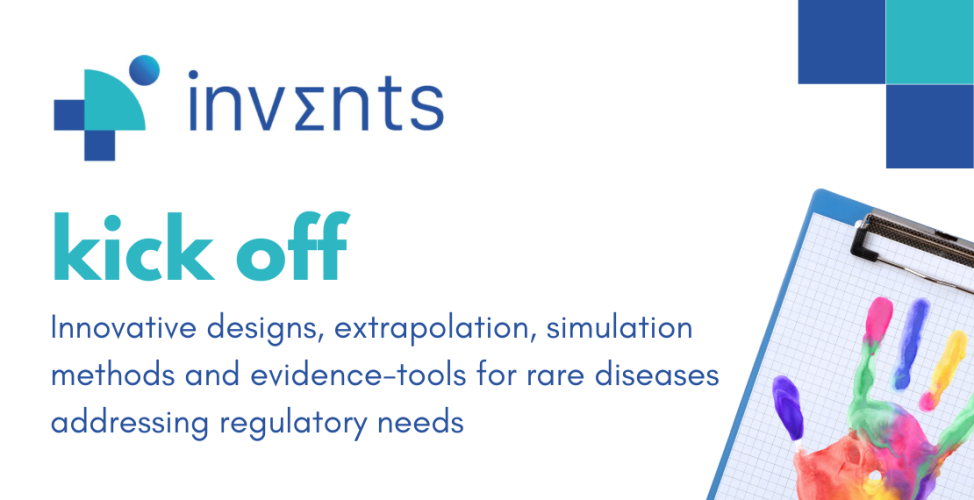INVENTS project kick-off: Delivering a comprehensive framework encompassing advanced computational models and evidence-tools to enhance regulatory decision-making in rare diseases

The evaluation of new medicines for rare diseases (RD), including paediatric RDs, is challenging for several reasons, among which are the small patient sample sizes, heterogeneity of patients and diseases and heterogeneity in disease knowledge. Due to these difficulties, access to effective treatments and the number of treatment options are often limited. The INVENTS project (full name: Innovative designs, extrapolation, simulation methods and evidence-tools for rare diseases addressing regulatory needs) started on 1st January 2024 under the coordination of the French National Institute of Health and Medical Research (INSERM) with the aim to address these challenges.
INVENTS will provide clinical trialists, researchers and regulators with a global framework encompassing methods, workflows, and evidence assessment tools to be implemented in orphan and paediatric drug development. The project’s ambition is to significantly improve the evaluation of evidence and regulatory decision-making through the development and validation of refined longitudinal model-based diseases trajectories and treatment effect, improved extrapolation models, in silico trials (e.g., virtual patient cohorts), optimised model-based clinical trial designs and evidence synthesis methods. These will be evaluated through simulation studies and tested on extensive data from a range of use cases provided by the industrial partners Roche and Novartis and Real World Data (RWD) from RD registries.
The INVENTS partners held a virtual meeting on 1st February 2024 to kick-off the activity. ECRIN will be working together with its Czech node Masaryk University on dissemination activities via training and workshops. Two major stakeholders in the field of clinical trial methodology will be targeted, the clinical trial units (CTUs) and the regulators and health technology assessment (HTA) bodies. For this, ECRIN will leverage its pan-European federation of national CTU networks and previous experience gained from the ERASMUS+ CONSCIOUS-II project on training in clinical research.


